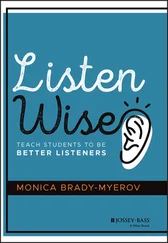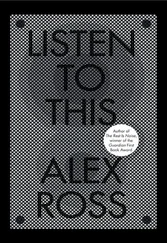Georgetown hadn’t secured the entirety of the boat — already budgets were tightening — and so a second party was also being hosted that night by a different school, which was how it happened that Mark caught Maggie’s eye. Complete serendipity. She was in her final year of the veterinary program at Howard University. She was remarkably tall and, that night, dressed in a sort of Annie Hall get-up that was several decades too late, but what initially attracted Mark to Maggie — what caused him to introduce himself in the first place — was an off-kilter gap between her two front teeth, which she exposed — seemingly without embarrassment — whenever she laughed. He assumed she’d been raised either in extreme poverty or extreme wealth.
What he liked best about getting together with Maggie those first few months of dating was the way she would — in public or private — seek out direct eye contact. At parties, at dinner, stretching in the park after a run together, he would sometimes find her watching him, which in turn would lead to him watching her, and the two of them might continue to watch each other, no words spoken at all. There was something animal about Maggie, and it made Mark feel there was something animal about him — a sensation he’d never before known to crave. She was as different as could be from his cohort at school.
Maggie, it turned out, was from a family that was neither outrageously advantaged nor incredibly poor. Instead, hers was a lower-middle-class childhood—“more lower than middle,” she liked to say — in the “upper middle of America” (Minnesota), where she’d been raised by a “brilliant but hateful” woman and a “handsome but unintelligent” man. Her older brother was an alcoholic who’d been given the little attention her parents could muster. Maggie was the daughter they hadn’t planned on and, as such, the one who received primary blame for any money woes the family might encounter. “And we were always encountering money woes,” she said. “But it’s not as though we had nothing.”
What was a wonder to Mark — a gift really — was the way that Maggie, rather than making him feel ashamed or embarrassed by his own privilege and upbringing, instead made him feel proud, lucky. She was always asking questions about his parents, always wanting to know more about his evening routines as a child — dinner at the table, followed by a walk in the woods with his parents, followed by reading aloud in front of the fire. Never before Maggie had he enjoyed sharing these stories, fearing always that he would be ridiculed and that his childhood might be deemed precious or out-of-touch.
And, yes, obviously those were the early days of courtship, and early days of any relationship mellow out, soften, dilute themselves into something more ordinary, less extreme, more ubiquitously accessible. Their relationship was no different than others in this regard, except that between them they retained a sincere fondness, a genuine gratefulness that the other existed and continued to exist.
But ever since that college girl’s death and, subsequently, the visit from the cops, Maggie had been spending most of her time at home and in a flannel robe. Mark had no idea where she’d even gotten the thing. He only knew that one day, about two weeks ago, he’d come home from work and she was wearing it. One of those plaid L.L.Bean jobs. At first it was a joke. Or Mark thought it was a joke, or at the very least something to joke about. Then one day — a week ago max — he’d been parking the car and there was Maggie, walking down the other side of the street with Gerome. She was wearing the robe. It was afternoon. It was daylight. Mark had a sudden sinking feeling that he was married to a loser.
Maggie had an excuse for her behavior, but it was getting old. It was getting old in part because she’d been getting better. The symptoms now felt disproportionate to the cause. Like, for instance, Patricia Hatchett, who was also in the History Department, had lost a baby last year, and Mark wasn’t the only one to notice that she looked better these days than ever. He’d heard she was considering a run for chair, for Christ’s sake. It embarrassed Mark that his wife had become a completely different person just because she’d been mugged. Strike that — because someone they didn’t even know had been murdered. But what was becoming more and more apparent — and this wasn’t a happy or an easy realization — was that Mark was spending his life with one of the world’s weaklings: the type of person who gets diagnosed with cancer and, instead of going outside and taking on life, gets in bed and waits for the inevitable. He’d expected more from Maggie. My god, he’d expected so much more!
How the mugging happened — what Maggie told Mark — went like this: she’d gotten off the Red Line at Berwyn. Same stop as always. It was getting dark but it wasn’t late. She crossed Broadway and started into the neighborhood. A man was waiting at the first alley. He asked for change. She ignored him, kept walking. He followed. It was their neighborhood— their neighborhood: middle-upper class, lots of grass! — she didn’t think anything of the fact that he was following her. She was three blocks from Clark Street. Three blocks from the coffee shop and their apartment and the dinner that Mark had made for them. By the next alley, though, the man had caught up to her. “Hey,” he said. He tapped her on the shoulder. Not even this had set off bells that she was dealing with anything more than a simple panhandler, a meager beggar. “The purse,” he said. He pointed to her bag. Her wallet and computer were inside. She laughed. “No way, dude,” she said. “Sorry.” She turned to walk away.
She claimed she didn’t originally see the gun, but later — after a young couple had found her and called the cops and taken her to the emergency room — when they showed her photos of the bruise on the back of her neck, of the perfect outline of the butt of a gun, she said the gun had become a part of the memory. Whether it was a trick of the imagination or a real recollection had been jogged somehow, she didn’t know. But ever since seeing the photos, she remembered the gun.
Not too long ago, as the winter yielded to spring, she’d gotten to the point where she was making jokes about the whole thing. She’d been fucking adorable with the story. Like, okay, at a dinner party five weeks ago— five weeks ago! — she’d been the belle of the ball. She told the anecdote three, maybe four times. She was a hit. A trouper. A riot. They all loved the way she’d said, “No way, dude.” Nadeem Gnechik had stopped Mark in the hallway the next day and said, “Your wife’s a goddamn battle-ax.” They shared a laugh and Mark thought to himself, Yes. He thought, A battle-ax — my wife. He thought, I’m a goddamn lucky man.
But then, with the arrival of those cops and their photos, out came the flannel robe.
Last week he found two bottles of mace in the dog-walking drawer and an application for a concealed carry permit. He’d torn the paper up and pushed it to the bottom of the trash.
Just three mornings ago, on her side of the bed, he discovered a string between the mattress and the box spring. When he pulled the string, he was surprised — surprised? No, try astonished —to find it was attached to a small switchblade.
When she got home from the clinic that night — the first shift she’d taken since the detectives — he pointed at the switchblade, which he’d set on the middle of the kitchen table, and said, “What the fuck, Maggie? What the fuck is this?”
She’d shrugged. “It’s a knife,” she said. Gerome was crazy-eighting around her legs.
“I know it’s a knife,” he said. What alarmed him most was how dismissive she was, how suddenly calm.
Читать дальше












